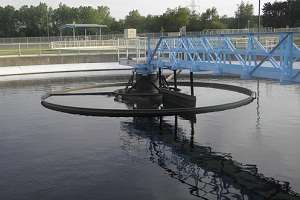Review highlights obsolete wastewater assessment practices

Scientists' methodologies need to be updated to meet the challenges of a rapidly changing field, according to a review of international research papers which investigated wastewater treatment.
A team of international researchers assessed 45 papers dealing with Life Cycle Assessment (LCA) of wastewater treatment, a technique which assesses the environmental impacts for all stages of 'production'.
UWA Adjunct Professor Jeff Foley says LCA is not an absolute tool and can only make comparisons between functionally equivalent products and processes.
But the review of existing literature highlighted that within international standards (ISO), there is a lack of consensus on defining functional unit and system boundaries for waste water treatment LCA studies.
"In our opinion, none of these documents provided a complete and comprehensive review on wastewater treatment LCA studies and defined the challenges for the forthcoming years," he says.
"The outcomes of similar studies are difficult to compare and may even give conflicting results depending on how functional unit and system boundaries are defined.
"This is compounded by the availability of several different impact assessment methodologies, which are also constantly evolving.
"So establishing the functional unit and system boundaries is critical, and can substantially alter the study outcomes."
Prof Foley says one of the key challenges for the field is the paradigm shift towards resource recovery, away from the traditional purpose of wastewater treatment plants which has been simply cleaning up a waste stream for environmental protection.
Resource recovery requires the researcher to think about treatment facilities as being production facilities, producing a new product that can be used or reused in the economy.
"The most visible example of this paradigm shift is the reuse of biosolids for agriculture," Prof Foley says.
"The use of WWTP [waste water treatment plant] biosolids displaces the use of other synthetic fertilisers, urea or super phosphate for example.
"By considering the WWTP as a resource recovery facility which produces saleable products, we have to widen our system boundary for the LCA.
"We need to consider the benefits and costs that arise by displacing other products in the economy.
"A comprehensive LCA study then needs to consider the impacts of this product displacement.
The research findings "Life Cycle Assessment Applied to Wastewater Treatment: state of the art" is published in Water Research.
More information: www.sciencedirect.com/science/ … ii/S004313541300540X
Provided by Science Network WA

















